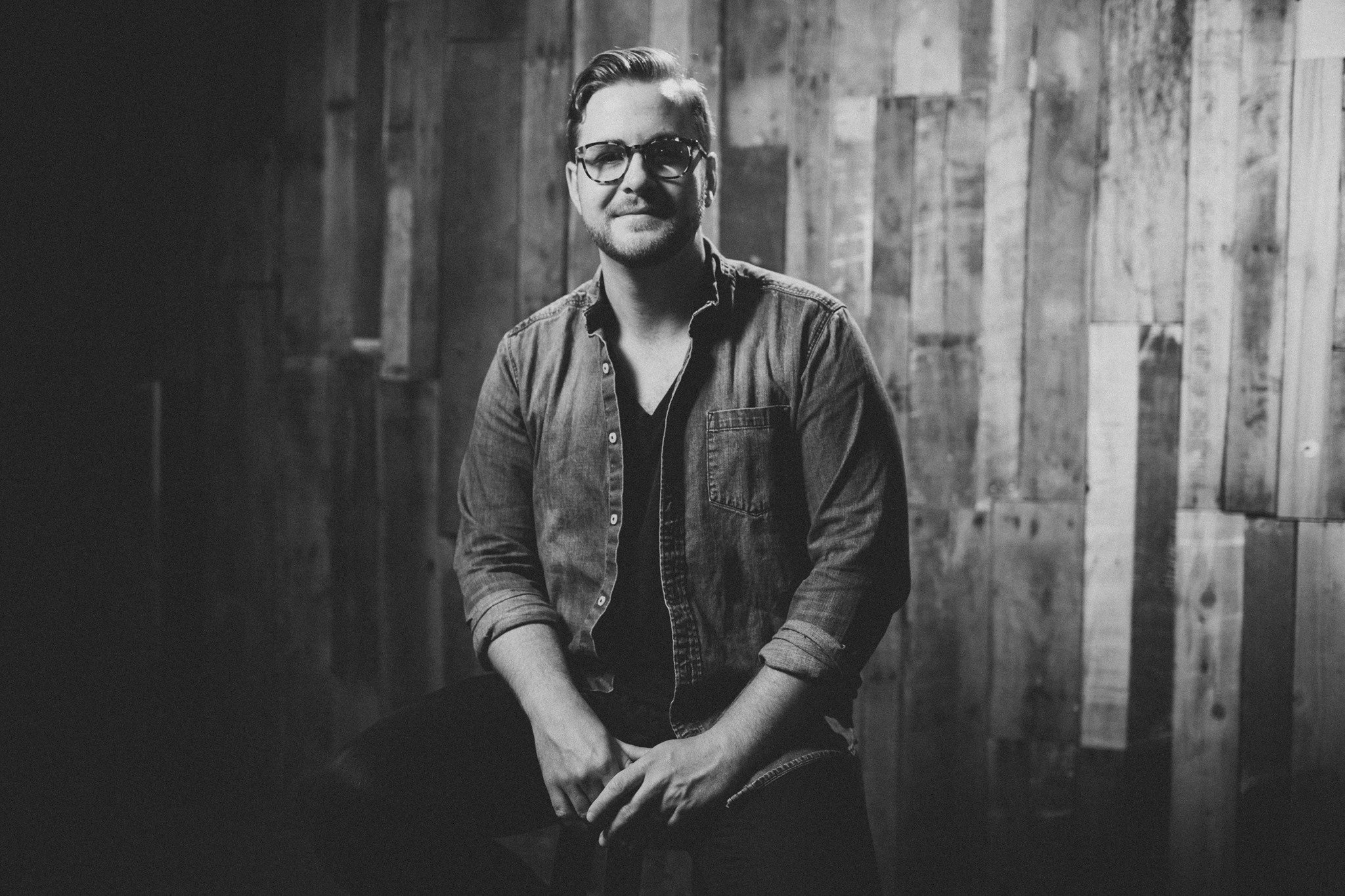Are you excited about the song ideas you’ve been carrying around in your head, but not sure how to translate them onto paper and into finished songs?
It can be tough for anyone — especially beginners.
But even pros have days when the ideas don’t flow effortlessly.
You might wonder whether your song ideas are any good or whether you have any talent for songwriting.
But really, the hardest part is just figuring out where to start.
So can you write a song if you’ve never written one before?
What about if you don’t know much about music (yet)?
The good news is, with today’s technology, you can write songs. You can capture your inspiration in a notebook or on your phone and either collaborate with someone or learn on your own as you go.
There’s nothing like birthing a song to inspire you to learn music or become a better musician.
And if you’re more experienced, you can learn to overcome the typical roadblocks that might keep you from getting started.
Once you do start, you’ll have momentum, which you can ride straight through to a finished song.
You can learn various methods for how to start a song, overcome those initial barriers, and feel that sense of achievement that comes from writing a song you can be proud of.
And if you can do that day in and day out, you can reach your songwriting goals.
Read on to learn how.
Do Your Songwriting Prep Work
Being prepared is not just about being ready to capture inspiration when it strikes. It’s also about setting up your life so that you’re able to recognize the inspiration that’s always there, all around you.
Get in the habit of keeping a notebook, pen, recorder, or phone with you at all times. You might think you’ll remember that great idea that comes to you while you’re standing in the grocery line but trust me, you won’t.
Next, commit yourself to continue growing and learning about topics like:
- How to write a song
- Song structure
- How to write chord progressions
- How to write a melody
- How to record your own song demos
- And more…
Then you can turn all your knowledge and inspiration into a song.
Why Learn the Different Ways to Start a Song?
There are many methods you use to start a song, and there are many paths you can take to get to your end result.
And like so much in songwriting, there’s no right or wrong.
You won’t necessarily use the same method every time (although some people do). You’ll probably also tend to use similar methods most of the time, which is fine.
Songs have many parts, and it really doesn’t matter where you start or where you end. No one will ever know the difference.
However, knowing some of the more common ways to get started will help you get moving when you’re feeling stuck.
You’ll have the flexibility to experiment and see what unique things you’re able to come up with.
How to Start Writing a Song
So, you’ve been taking my advice and you’ve been capturing the inspiration you find in real life. You’re seeing potential songwriting ideas all around you.
Now it’s time to pull out your notes and recordings to see what’s jumping out at you today.
How do you choose? At this point, it’s really subjective.
Have you been itching to write a summer party tune? Is your collaborator inspired to write a different kind of love song? Are you working with an amazing keyboard player who’s got a memorable pop groove?
Throw out some ideas and brainstorm. What’s grabbing you today?
Songs often start with a strong hook.
Remember that hooks can be many things: a unique turn of phrase, a cool guitar riff, a catchy vocal melody, or a distinctive bass groove to name just a few. And songs can and often do have more than one hook.
So when you’re pressed for ideas, start noodling. If you’re an instrumentalist, you’ll often find hooks just from picking up your instrument and playing. If you’re a lyricist, see what ideas are begging to be written now.
At this stage, inspiration comes first. You’re not looking for perfection. You can tweak, polish, and add parts later.
Because at its core, songwriting isn’t writing — it’s rewriting.
The way you start your song will fall out of this initial inspiration.
Give Your Song Some Direction
Next up, you’ll want to put a little more structure around your song. You’re still in inspiration mode, but now you’re going to focus your muse. This is step 2 of writing a song, Pick a Theme.
Look at the idea you’ve decided to work with today and then choose your theme, tone, title, etc.
Your theme or concept is your song’s main, unifying idea. It’s the glue that holds your song together, and choosing a strong one will set your song apart.
Your concept can be your title, it can be a story, it can be an idea — but great songs always start with great concepts.
Your theme will also keep you focused as you write. You’ll be able to write to the hook, because you’ll know exactly what that hook is. As a matter of fact, if you choose a strong theme, your song will often practically write itself.
So let’s recap:
First, choose your inspiration for the day.
Next, give it some focus with a compelling theme.
Now start hammering it into a rough version using the ideas below.
10 Methods to Start a Song
Here are the most common ways songwriters get started.
1. Start with a melody
You might find a cool melody as you’re strumming chords or humming or singing nonsense words. You could listen back to recordings you’ve saved and decide you want to develop an idea further.
Maybe you woke up with a tune in your head. Whatever the source, you’ll often come up with the melody of the chorus and build the rest of your song around that.
Your chorus’s melody is usually higher energy and higher pitched than your verses. Depending on where your song’s climax is, you might push both farther in a bridge or final chorus.
Don’t worry about lyrics yet. Many songwriters use filler lyrics or nonsense words to nail their melodies before moving on to writing actual lyrics.
2. Start with chord progressions
When it comes to chords, you can borrow inspiration from other songs or from simply playing around. While it’s true that many songs use the same chord progressions, you can make yours unique by pairing it with a unique melody, adding a distinctive rhythm and original lyrics, and experimenting to find the right tempo.
You can’t go wrong sticking with the tried and true here. Your next step after deciding on your chord progression will be to move to writing your melody (likely) or to your rhythm and bass line, and then on to lyrics.
3. Start with a rhythm or groove
A cool bass groove or rhythm is a perfect start to a song. You might be inspired by something you’ve heard, come up with something interesting just from woodshedding, or choose a catchy, pre-recorded drum loop.
It’s all fair game. Usually if you start with rhythm, you’ll move on to chords and then melody next.
Just be mindful, especially if you’re a beginning or intermediate instrumentalist, that you don’t fall into using the same rhythmic patterns too often — otherwise, all your songs will sound the same.
4. Start with lyrics
A simple phrase can (and often does) inspire a whole song. You’ve already decided on your theme. Just like with melody, when you start with lyrics, you’ll often come up with your chorus first.
But even if you do start writing a verse, don’t worry. Get those ideas down on paper and then hammer out your chorus next, as it’s the focal point for the rest of your song. Then you’ll usually move on to writing your melody, chords, and rhythm (in that order).
5. Start with a title
Sometimes the perfect song title will grab you — and you just know that you have to write it. Maybe it will be something you do right away, or it might be an idea that you save for the perfect time.
Either way, you’ll usually want to write your chorus around your song title first. Ideally, especially when you’re writing for the masses, your title will be a unique and memorable hook, repeated several times.
Once you have your chorus lyrics, you can move on to your verse lyrics and then your melody. Just make sure your listeners can pick out your title and remember it.
6. Start with a riff
If you play an instrument, you’ll undoubtedly find cool and memorable riffs just by sitting down and noodling. You may write your riffs while playing to chord tracks or while simply jamming. Either is fine — just make sure you record them or write them down.
Although riffs might not seem like much, you can definitely build great songs around strong ones.
Work on yours until it really stands out, then follow it up with chords and rhythm, and then your lyrics and melody.
7. Start with a motif
A motif is a simple, repeated musical phrase. Shorter than a riff, motifs usually consist of just one or two notes up to a bar or two. Even though they’re small, they can still be powerful. You can have rhythmic motifs, but melodic ones are more common.
So experiment with some catchy ones, add in your chords, and then either move on to writing the rhythm underneath or the lyrics and melody on top.
8. Start with a tone
Sometimes you may be inspired by a particular tone (especially if you’re a guitarist). Tone isn’t the music you play or how it’s played, but rather how it sounds when it’s played.
We can dive down a huge rabbit hole discussing tone, but generally, you’ll start off playing chords, a riff, or a melody with different effects.
Tones are described by words like bright (lots of high end), warm (balanced low end and mids), muddy (lots of lower mid-range and warmth), bluesy, etc.
If you find a unique tone you love (and that fits with your theme), you can definitely build a song around it. Start with chords, melody, riffs, or a motif and build from there.
9. Start with harmonies
This approach is probably not so common, and it does require some basic knowledge of music theory. But if you’re messing around with chord progressions or melodies, you might find yourself inspired by the cool harmonic possibilities.
When that happens, don’t be afraid to run with it. In this case, you’d write the chords and melody first, add in your harmonies, and then fill in the rhythm and the lyrics.
10. Start with a song structure
Starting with a particular song structure can be a fun approach. While you might think that it would limit your creativity, it can also help you focus — and having some guardrails in place can even enhance your creativity.
If you’re a beginner, I always recommend you start with the basic song structure I describe here. More experienced writers can experiment more.
Additional Thoughts on Getting Started

When you’re starting a song, capturing your inspiration is critical.
Don’t worry about making everything perfect yet, and don’t worry about having all the right words.
Songs take time to write, and great songs come not from writing in one shot, but from rewriting them over time.
Sometimes a full song will come to you all at once, but that’s rare. Usually you have to get the skeleton down and then polish it multiple times, adding in interesting parts and layers.
Next, record a rough demo. Just get the song down. It doesn’t have to be fancy at this stage. But having a recording that you can set aside for a day or two — and then come back to later — will help you see where it’s weak and give you ideas to improve it.
Finally, collaborate. You can actually bring in a partner at any time in this process. Plus, when it comes to songwriting, two (or more) heads are usually better than one.
What Are Your Favorite Ways to Start a Song?
If you’re just starting out on your songwriting journey, you may have no idea how to start. If that’s the case, choose one of the methods on this list and see how it works for you.
If you’ve been at it a while, you may know your favorite ways to get started. If you’re always a lyrics-first writer or a melody ninja, great! Lean into your strengths. But don’t be afraid to mix things up occasionally.
And then pat yourself on the back.
So many people dream of writing songs but never get started — and so many never finish anything either.
So celebrate your progress and keep up the momentum with the steps in this post, How to Write a Song.
We’re all waiting to hear what you come up with!


